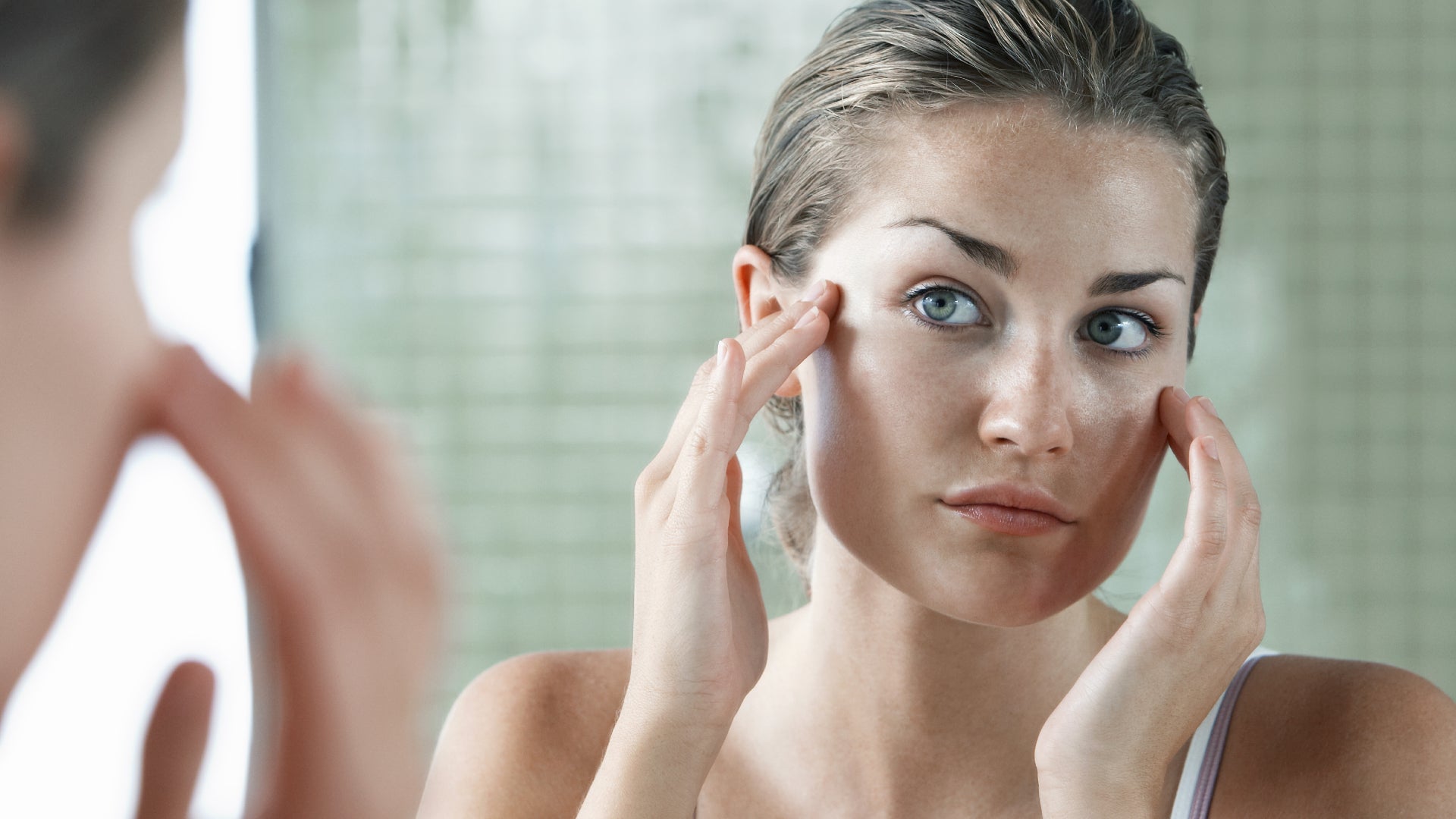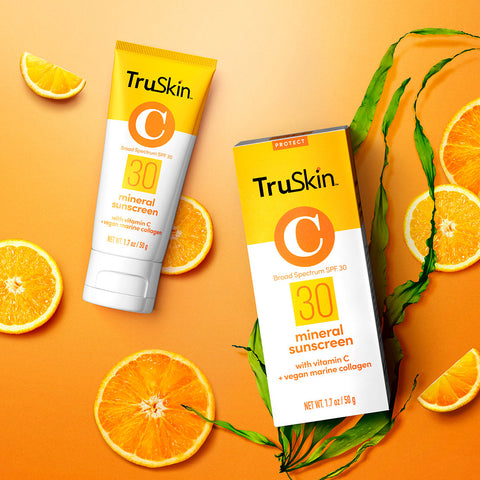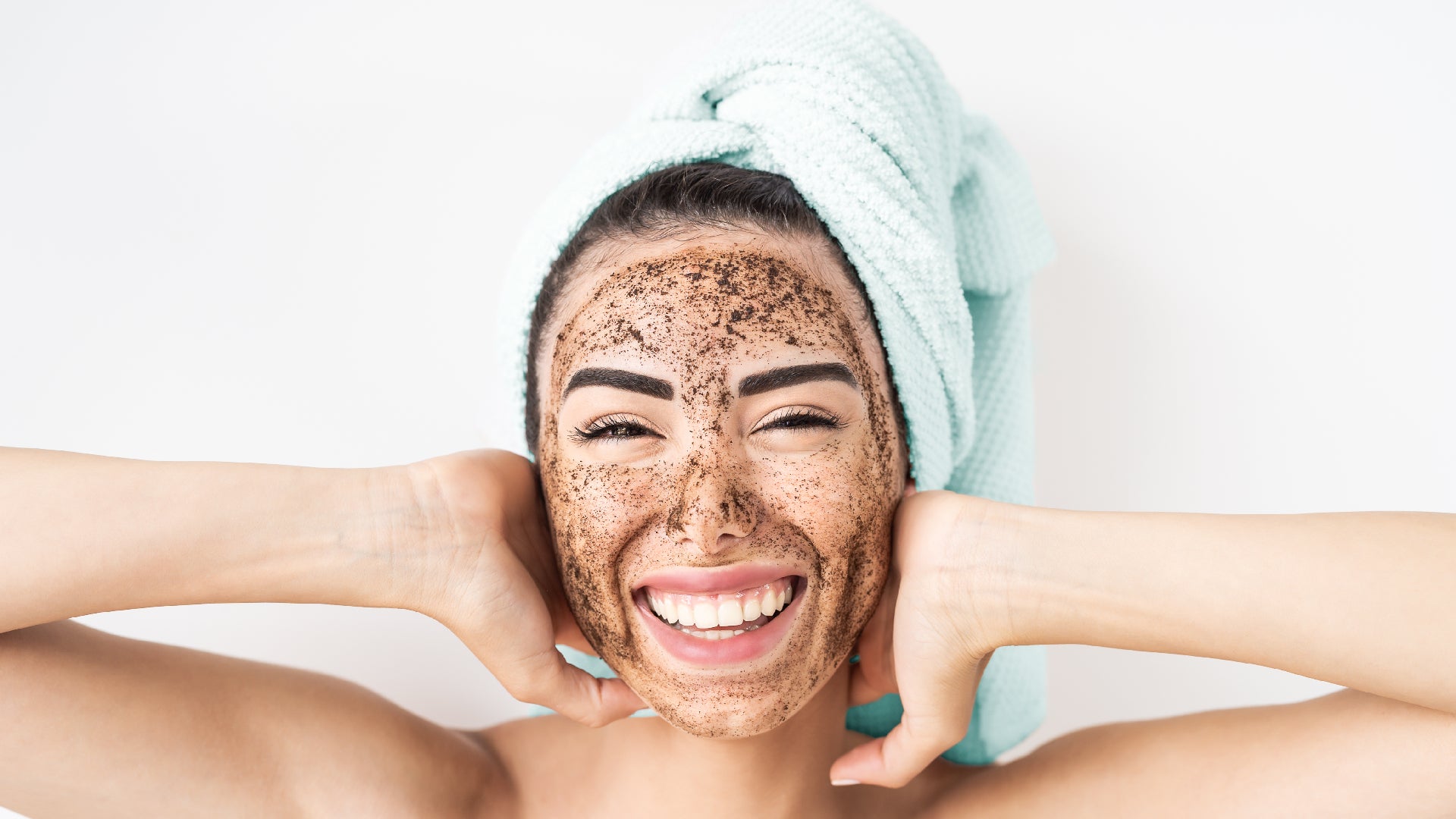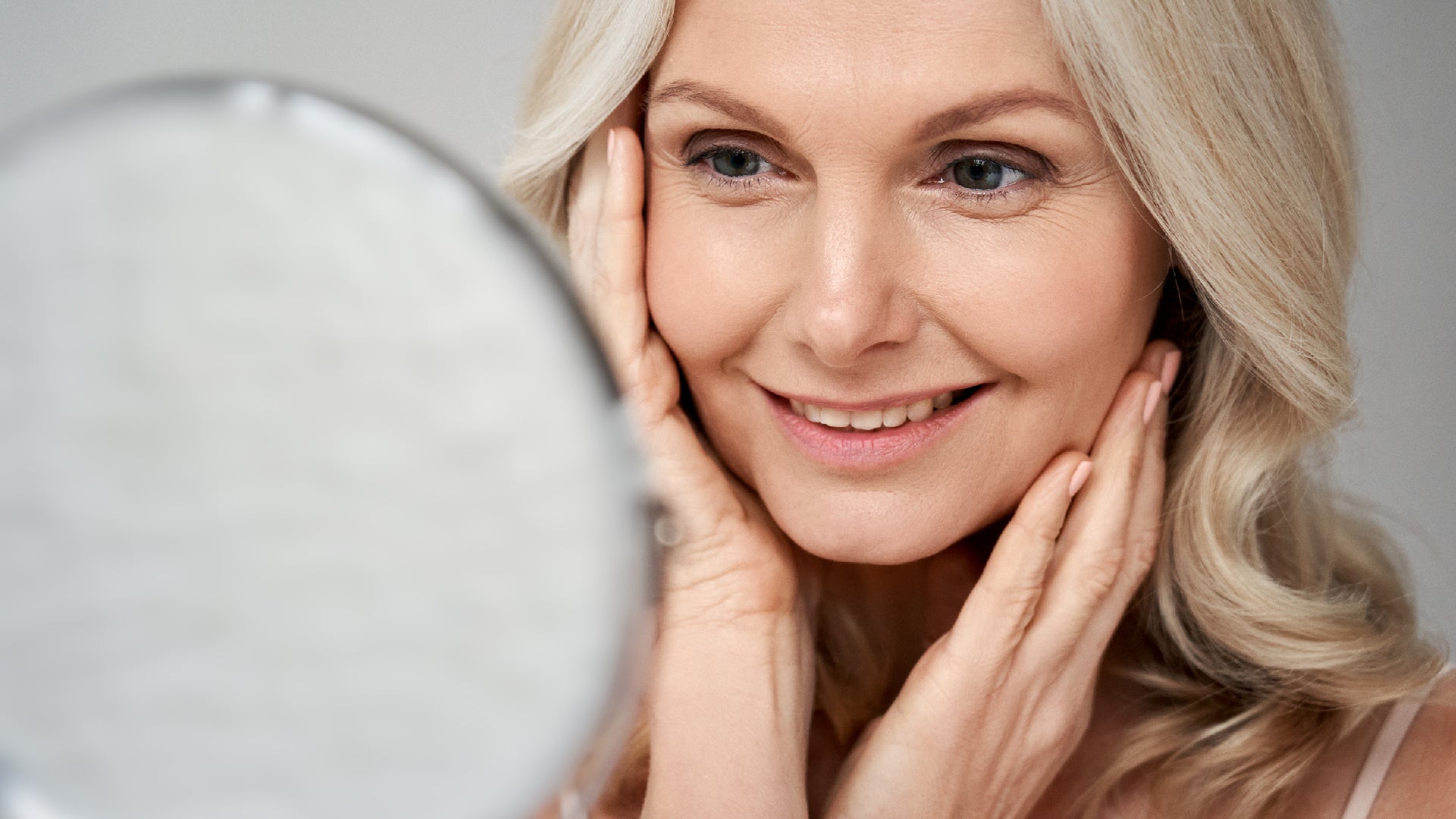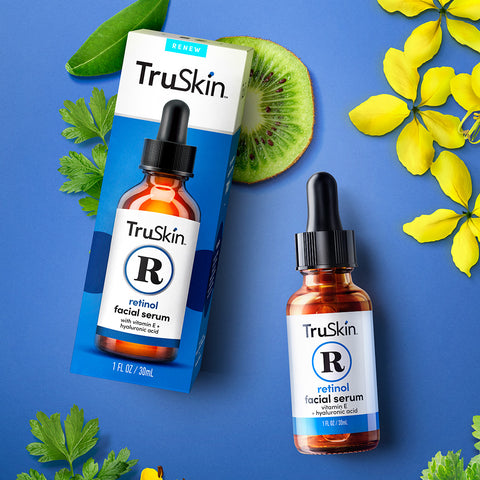
True Radical Honesty From Our Community
What To Do If You Hate Those Fine Lines Around Your Lips
Read MoreAdvice for all of your skin care needs
-
Retinol is arguably one of the most lauded skincare ingredients out there. We don’t dispute that. But if you don’t get on with retinol, what are the alternatives? Read on for eight other skincare greats that can be just as effective for aging skin.
Retinol? We approve. In fact we have a whole bunch of skincare formulations, including an awesome serum and moisturizer, based around this skincare powerhouse. However, while its benefits to your skin are undeniable, it’s not the only ingredient that helps aging skin. Sure, it’s been proven time and again to nudge collagen synthesis and encourage faster cellular turnover. And yes, this simultaneously works to improve the visible appearance of pimples, dark spots, fine lines and wrinkles. But retinol is not without its faults. Ask anyone with sensitive skin and they will attest to its sometimes irritating, redness-inducing qualities.
The good news is that when retinol isn’t playing ball, there are tons of other incredible ingredients that can help deal with your skin woes just as well. Some might even be a more effective option for you – depending on your skin goals, of course. So let’s check them out, shall we?
1. Bakuchiol
New (ish) to the skincare game, but already giving retinol run for its money, bakuchiol is your guy if you’re looking to replicate the effects of retinol, but are so not in the market for dryness, redness, peeling or irritation.
Bakuchiol (pronounced bah-koo-chee-awl) is nature’s best alternative to retinol. Extracted from the seeds and leaves of the babchi plant, it’s been used for centuries in Chinese and Ayurvedic medicine and, if recent clinical studies are anything to go by, it’s shown real promise for dramatically improving the surface of the skin. How does it do this? By stimulating collagen synthesis and accelerating cellular turnover at a deep, below-the-surface level. And if this sounds familiar, that’s because this is exactly what retinol does. The difference is that bakuchiol is more gentle on the skin so has way fewer side effects. If any at all.
We’re big fans of bakuchiol (if you couldn’t tell!) and based an entire range of healthy aging formulations on this awesome ingredient. Try the lot with our Longevity Regimen Bundle which includes Renewing Moisturizing Cream, Depuffing Eye Cream and Rejuvenating Serum to tackle the signs of aging from all angles.
2. Ceramides
We know you’ve heard of ceramides, but do you know what they actually are? Well, ceramides are important lipids found naturally in your skin’s structure where they play a major role in the efficiency of your barrier function, binding your cells together while helping your skin to maintain strength, stability and protection from the outside world.
Unfortunately, skin loses ceramides as it ages and this compromises your barrier function, resulting in anything from the odd bit of dryness through to rough texture and some serious premature aging. Not cool.
Topical ceramides, however, can be a great addition to your skincare routine, boosting moisture, strengthening your BFF (barrier function friend, that is!) and, in turn, helping to fight back against wrinkles and sagging skin. Try our fabulous Firming Collagen Day Lotion and Smoothing Collagen Serum dynamic duo to get your fill.
3. Glycolic Acid
As a fully paid up member of the AHA (alpha hydroxy acid) club, glycolic acid is a chemical exfoliant that helps accelerate cell turnover by breaking the bonds between dead skin cells and encouraging them to split. Retinol does the same, albeit it in a very different way.
Full disclosure, glycolic acid’s potency is on a par with retinol so it does have a tendency to overpower certain sensitive skin types. But as long as you use it carefully, introducing it slowly and not overdoing it, it can be a great way to brighten and smooth the skin while helping to fade dark spots.
Glycolic acid is also a smart choice if you’re looking to reduce acne breakouts. (Ha, no thanks we’ll keep them as they are, thanks – said nobody, ever!). It works by helping to keep your pores clean and free of dead skin cells, which makes them appear tighter and stops them from becoming blocked and inflamed. Want in on some of that? Then treat your skin with 6% AHA, BHA + PHA Liquid Exfoliant two or three times a week. You won’t regret it.
4. Hyaluronic Acid
Without a decent amount of hydration, skin is nothing. Moisture helps keep your skin plump, soft, smooth and youthful-looking, reducing the appearance of redness, fine lines and wrinkles while smoothing rough texture and firming sagging skin. It figures, therefore, that if you don’t keep your well hydrated it will age up in no time. And no amount of retinol will be able to stop it!
Enter hyaluronic acid (HA) to the skincare scene. A master of hydration, HA can hold up to 1,000 times its weight in water, drawing moisture to the surface of your skin when applied topically. It’s also very well tolerated by all skin types (your skin naturally contains HA so, of course it loves it!).
Granted, hyaluronic acid doesn’t have the ability to boost skin turnover, but don’t hold that against it because it does have antioxidant powers to protect your skin against environmental free radicals and safeguard your all-important collagen and elastin supplies. We’ll take that. Try our Hyaluronic Acid Facial Serum and see for yourself what a fantastic ingredient it really is.
5. MSM
Otherwise known as methylsulfonylmethane, MSM is a naturally-occurring form of sulfur that’s regularly used in skincare. It often gets overlooked, however, because big guns like retinol, vitamin C and glycolic acid like to take all the glory. Pretty unfair if you ask us – especially because it’s so freakin’ good!
Sulfur is one of the most important elements in the human body and it’s often touted as the ‘beauty’ or ‘healing’ mineral because it accelerates healthy blood flow, reduces inflammation, and plays a key role in the production of collagen and keratin. MSM does all this AND works hard to fight environmental damage by helping to increase your production of glutathione, one of the body’s most important, naturally occurring antioxidants.
MSM also gets extra bonus points for increasing your skin’s permeability. This allows toxins to escape more easily and enhances your skin’s ability to absorb all those delicious, active ingredients in your skincare products, allowing them to penetrate the skin quicker and deeper. AKA better. Try our turbo powered Vitamin C Super Serum+ for your fix of MSM… as well as other skin-restoring greats.
6. Niacinamide
Niacinamide is a form of vitamin B3 and a total powerhouse for mature skin, helping to address all manner of concerns including dehydration, discoloration, dryness, poor texture, fine lines, wrinkles and even redness and irritation.
An absolute go-to for sensitive souls, niacinamide is an awesome alternative to retinol because it’s well tolerated by all skin types and even helps to calm and soothe irritation caused by chronic skin conditions like rosacea and eczema. It works by increasing the production of ceramides in the top layers, helping to look after that all-important barrier function and improving the strength, resiliency and moisture levels of your delicate skin. As you know, dry skin is terrible for the appearance of line and wrinkles so anything you can do to help maintain a legitimate amount of hydration will simultaneously help your skin look more youthful and glowy.
Niacinamide also fights free radicals and regulates oil production so it’s a pretty fabulous choice for oily, aging skin. But that being said, it’s a pretty fabulous choice for ALL skin types. Which is why our Niacinamide Facial Serum is such a baller.
7. Peptides
When it comes to boosting your supplies of skin-loving collagen and elastin, peptides have your back. How so? Well, just like proteins, peptides are chemical compounds made up of amino acids. And because they’re so closely related – peptides are short chains of no more than 50 amino acids, whereas proteins are much longer molecules of multiple peptides – peptides signal your skin to be more efficient in its synthesis of vital proteins like collagen and elastin. Some peptides also encourage your skin to produce more hyaluronic acid which is great for hydration and free radical protection.
Of course, some peptides are better than others. Many are unstable, some are too large to be able to penetrate your skin and others just don’t perform that well. So make sure you’re looking for the good ones when choosing your anti-aging weapon.
Matrixyl 3000, for example, is a combination of two peptides that has been independently proven to boost collagen in your skin, offering true results for a whole host of skin concerns including fine lines, wrinkles, dark spots and hormonal breakouts. We also love palmitoyl tripeptides-1 and -5, and palmitoyl tetrapeptide-7 which combine to offer a true force for pumping up your much-needed supplies of collagen, elastin and hyaluronic acid. Find them in our incredible Peptide Facial Serum.
8. Vitamin C
Last, but never least, is vitamin C which, as you know, means the world to us at TruSkin. With no less than eight skincare formulations based on the prowess of this antioxidant dreamboat, we basically live and breathe vitamin C. No word of a lie!
The reason we love it so? Simple. Vitamin C is one of the most trusted and clinically-proven ingredients known to skin. It provides the very best in environmental protection (read stronger, healthier skin), controls melanin production (hello brighter skin and a more even skin tone) and gives your sunscreen an extra helping hand to shield your skin from the daily onslaught of damaging UV radiation. All of this adds up to stronger, youthful-looking skin that maintains its firmness, radiance, smoothness and evenness. Yes, even if you are closer to 80 than 20 ;)
Our classic Vitamin C Facial Serum is always a winner, no matter your skin type, but you must also try the divine Vitamin C Deep Hydration Night Cream before bed each night to restore your skin as you sleep and power it up for another day.
Not Down With Retinol? Try These Just-As-Good Ingredients For Aging Skin
read more -
Face scrubs can be fabulous for the health of your skin. Using yours incorrectly, however, is not. So, don’t be that person who screws up their exfoliation routine and makes their skin pay for it.
With the launch of our awesome new Vitamin C Gentle Face Scrub, we’ve finally made it into the wonderful world of exfoliating scrubs. Can we have a group hug for that, please? Packed with some of the most incredible, skin-boosting ingredients, our new scrub instantly wakes up your skin, encouraging efficient cell turnover and healthier collagen to give your skin the best (but most gentle!) exfoliation of its life.
Yet to try Vitamin C Gentle Face Scrub? Don't worry, a) you’re forgiven, it’s very new, after all and b) here’s a quick lesson in what you need to know. For starters, this super lightweight scrub is fragrance-free which is very important if your skin flares up at the mere mention of synthetic fragrance in your skincare routine. And instead of fruit seeds or ground nutshells (which can cause micro tears in your skin) we use white Bora Bora sand to exfoliate. This superior type of sand is much finer than your regular beach sand, helping to gently buff your skin without risk of irritation.
If all this wasn’t enough, Vitamin C Gentle Face Scrub also contains a whole host of plant-powered ingredients including our new bestie, yuzu lemon which is brimming with vitamin C. We combine this with another C-vit favorite, sodium ascorbyl phosphate (SAP) to provide top quality antioxidant protection and a hard-to-break shield against free radical damage.
So, what’s the best way to use our new scrub without causing your skin to freak out? Well, we cut out the harsh ingredients and over-scrubby particles to help you out there. But, still, you have to do your bit, so read on for seven deadly (dramatic, much?) face scrub mistakes you do not want to make…
Face Scrub Mistake #1. Exfoliating Too Often
You know that phrase about having too much of a good thing? Yeah that. When it comes to how often you use your face scrub, always keep that phrase front of mind. Daily exfoliation, for example, can send your barrier function into a total frenzy, stripping it of essential moisture and leaving it vulnerable to breakouts, dehydration, dryness, redness and sensitivities.
If you’re experiencing any of these right now and reckon your over-excited scrubbing routine could be the culprit, pare it back by a good 50 percent.
Face Scrub Mistake #2. Not Exfoliating Enough!
Of course, not exfoliating your skin enough (or, gasp, at all!) can be just as detrimental for your skin, allowing your pores to become clogged, collagen synthesis to become sluggish and your skin to become dull or congested as a result. As you know, exfoliating your skin helps to remove dead skin cells and debris like oil, makeup, and dirt which can build up on the surface if you allow it. So don’t. Introduce a face scrub to your routine to keep your skin healthy and glowing but remember to listen to your skin and find your exfoliating sweet spot depending on your skin type and concerns.
If you have oily skin, for example, you might be able to get away with more frequent exfoliation to help balance sebum – maybe three or four times a week. Dry skin, on the other hand, is more susceptible to irritation so once or twice a week could be enough for you.
Face Scrub Mistake #3. Bombarding Your Skin With Other Exfoliating Formulations
Exfoliation comes in two different guises: chemical and physical. Chemical formulations like our 6% AHA, BHA + PHA Liquid Exfoliant use ingredients like fruit acids to sit on your skin and break down the bonds between dead skin cells, whereas physical formulations (like scrubs) require pressure and movement in order to exfoliate your skin.
Both are great in their own special ways, but it’s not the best idea to use both at once. Again, too much of a good thing. Of course, your skin might be able to cope with a scrub one day and a gentle chemical exfoliator the next, but don’t double up at the same time. And always read your skin – any signs of irritation, redness or inflammation is a red flag and you need to cut back.
Face Scrub Mistake #4. Being Too Rough With Your Scrub
Sure, physical exfoliation requires physical pressure (the clue’s in the name, after all!) but let’s not get too physical, OK?
Scrubs are excellent for sloughing off dead skin cells but you do not need to rub away at your skin like your life depended on it. This can cause micro-tears in your skin, leaving it red, raw, sore and inflamed. Not only that, but it will compromise the delicate balance of your barrier function, encouraging irritation and dryness. Conversely, it could also over-stimulate your sebaceous glands, causing your skin to become super oily and break out.
Basically nothing good can come of exfoliating too hard, so apply gentle pressure only, using your hands and the pads of your fingers to massage your scrub lightly all over your skin. Also, remember to be extra careful when dealing with thin, fragile areas like around the eyes and over your décolletage.
Face Scrub Mistake #5. Skipping Your Cleanser
Are you one of those people who uses their face scrub instead of a face wash? Then you’re doing your skin a real disservice. A face scrub shouldn't substitute your cleanser but should be used alongside it – as and when your skin needs it, of course.
There really is no rule about which comes first, however – cleanser or face scrub – because both ways have their benefits. Cleanse before exfoliating (the more common combo) and you’ll have prepped your skin to give your face scrub a beautiful, clean base to work on. But exfoliate before cleansing and your fresh skin will reap the benefits of your cleanser much better.
Try them both to see which you prefer. Just don’t ditch your cleanser. Ever.
Face Scrub Mistake #6. Not Moisturizing Post-Scrub
While you’ll love the look and feel of your skin after physical exfoliation, it’s crucial to replenish any lost moisture and nourishment by following with a good moisturizer and, even better, a healing or hydrating serum. What’s more, freshly exfoliated skin will accept other skincare products more readily, allowing all those fabulous active ingredients in the rest of your routine to penetrate the skin and get to work more effectively.
We love the awesome combination of Smoothing Collagen Serum and Firming Collagen Day Lotion which, together, help to ‘feed,’ firm and strengthen your skin while boosting collagen production and restoring moisture.
Don't miss this vital, post-exfoliation step in your routine. You'll regret it if you do. Simple as that.
Face Scrub Mistake #7. Forgetting Your Sunscreen
And then there’s sunscreen which is vital every day of the year, but especially on days when you’ve exfoliated and removed the dead, uppermost layers of your skin. Those new, fresh cells are extremely vulnerable and likely to burn and age up in the sun in no time. Which kind of defeats the purpose of exfoliation in the first place.
Get involved in our SPF 3 Mineral Sunscreen with Vitamin C every day, applying it after or instead of your moisturizer depending on your skin type. Trust us, this gorgeous sun protection cream is so good you will actually want to wear it!
Don't Make These Common Mistakes With Your Face Scrub
read more -
When something as important as exfoliation comes in two completely different guises, how do you know which is best? Read on for a complete breakdown of the highs and lows of both chemical and physical exfoliation…
Exfoliation is one of the simplest, most effective skincare habits for transforming dull, sad skin into the brightest, healthiest-looking skin of your life. It works hard to smooth out annoyingly bumpy skin texture, reduce the frequency of pesky breakouts, decrease excess oil, and even minimize the appearance of fine lines and wrinkles.
But exfoliation is often plagued by contradictions and it can be hard to navigate the facts. Should you or should you not exfoliate every day? Are scrubs better than exfoliating masks? Or is the opposite correct?
Of course, the truth usually depends on your skin type and its current condition (because, yes these are two very separate things), but one thing’s for sure, exfoliation takes on two very different forms. And it’s important you know what’s what so you can make the right decision about what’s right for you and your skin.
Before we go any further, however, let’s have a quick refresh on the basics. As you know, skin renews itself every day, shedding millions of cells as it produces fresher ones deeper below the surface. This process is called desquamation and it’s a pretty efficient way of keeping your skin fresh, healthy, moisturized and well protected from the slings and arrows of daily life. Like most good things in life, though, this process slows down as you age, allowing dead skin cells to hang around at the surface and encouraging dryness, dehydration, blocked pores and the formation of lines, wrinkles and other visible signs of aging.
The good news is that exfoliation – both physical and chemical – is here to save the day, sloughing off dead skin cells (as well as other nasties like grime, pollution, makeup and excess oil), boosting circulation, accelerating cell turnover and helping to keep your skin’s barrier function ticking along nicely. Technically, both physical and chemical exfoliation do the same thing. But they work in completely different ways.
So first up, let’s take a look at the most ‘classic’ and well-known form of exfoliation: the physical kind.
What Is Physical Exfoliation?
Physical exfoliation is the one you’ll be most used to. Remember those scrubs you made as an enthusiastic teenager that contained all manner of kitchen ingredients like mashed banana, oatmeal and yogurt? Well, thanks to the oatmeal, that’s a physical exfoliant right there.
Physical exfoliants are abrasives and basically include anything that requires some kind of manual force or motion in order to remove dead cells from the surface of your skin. Face scrubs, which contain grainy elements like sand, sugar, salt and fruit seeds, are the most obvious choice, but mitts, loofahs and cleansing brushes also fit into the same camp.
Then there are the professional treatments like microdermabrasion and dermaplaning. If you’re not acquainted with these, microdermabrasion works by combining microcrystals with a vacuum suction to exfoliate dead skin cells and stimulate collagen production. Dermaplaning, meanwhile, employs a tiny razor to gently shave the skin’s surface. This helps remove peach fuzz, but is also helps get rid of the upper-most layer of dead skin cells as an extra bonus.
Is Physical Exfoliation For You?
When used carefully, gently and not too often (two or three times a week is usually the sweet spot), physical exfoliation can be a great addition to any skincare routine.
We find they’re particularly great for:
* Improving poor skin texture
* Oily skin
* Boosting circulation
* A truly deep clean
* Instantly brighter skinIn? Then Try: Our brand new Vitamin C Gentle Face Scrub which we’re super excited about. Abrasive without being too hard on your complexion, this delicious scrub harnesses our favorite type of vitamin C, sodium ascorbyl phosphate, alongside antioxidant-rich yuzu lemon (which is also naturally chock-full of vitamin C) to work on dull, lifeless-looking skin fast.
All this combines with the smoothness of Bora Bora white sand which is no ordinary sand. Ultra-fine, it's extremely gentle on the skin to help promote cell turnover and remove rough, dead skin cells without the irritation often experienced with inferior face scrubs. Add in some soothing, hydrating aloe and all this makes for the ideal twice weekly scrub in a nutshell. Although, fyi, no nutshells were used in the making of this scrub. Nutshells do not have a smooth, uniform shape which makes them notorious for creating micro-tears on the surface of your skin. And we do not want that for you.
What Is Chemical Exfoliation?
Instead of using physical movement to boost cellular turnover, chemical exfoliants use topical ingredients (usually acids) to dissolve and break down the bonds between dead skin cells so they slough away more efficiently. Again, there are skincare products you can use at home, but also professional treatments like chemical peels can offer very powerful results.
Most at-home chemical exfoliants use AHAs, BHAs or PHAs as a means to get the job done.
Alpha hydroxy acids (AHAs) are water-soluble chemical compounds that are usually extracted from fruit or milk sugars. Glycolic acid is probably the most well-known AHA because it has a very low molecular weight which makes it very good at penetrating the skin. Sometimes, too good if your skin errs towards the sensitive side. And this is where lactic acid comes into its own. Lactic acid has a larger molecular size than its glycolic cousin which makes it way gentler and more readily tolerated by sensitive skin.
Unlike their water-soluble AHA cousins, beta hydroxy acids (BHAs) are oil-soluble substances which means they’re able to cut through the lipid layers between your skin cells to penetrate into your pores and exfoliate your skin on a much deeper level. As well as being darn good at exfoliating your skin, BHAs also target and reduce excess sebum to clear and brighten the skin – that’s a big deal for anyone struggling with oily, inflamed or acne-prone skin, btw. Examples of BHAs? Frankly there’s only one worth mentioning, salicylic acid which has been studied for decades and proven to not only target pores and increase cell turnover, but to offer incredible antibacterial and anti-inflammatory benefits.
Last, but not least, you have poly hydroxy acids (PHAs). Much newer to the exfoliation scene, PHAs are a new generation of water-soluble AHAs with all the benefits… but with less of the side-effects. The reason for their gentle nature is that they’re formulated with multiple strands, so they have a larger molecular size and are therefore unable to penetrate the deeper layers of your skin. Instead, they work exclusively on the skin’s surface to boost cell renewal without irritating your complexion. They’re basically your go-to if you have super-sensitive skin but are concerned about the visible signs of aging. Main players include gluconolactone (sometimes referred to as gluconic acid) and lactobionic acid which is an oxidized form of lactose and extracted from cow’s milk.
Is Chemical Exfoliation For You?
Just like their abrasive co-workers, chemical exfoliants work for all skin types as long as you patch test them first and use them as often (or as little!) as your skin allows.
They’re specifically good for…
* Sensitive skin
* Targeting dark spots
* Acne-prone skin
* Fine lines and wrinkles
* Enlarged poresIn? Then Try: 6% AHA, BHA + PCA Liquid Exfoliant which, as the name suggests, combines all three chemical exfoliants (and vitamin C, of course!) to gently but powerfully boost cell regeneration and promote brighter, younger-looking skin. Simply apply it to cleansed skin before your serum and moisturizer for a daily glow-getting fix and watch your skin continue to get better and better.
Chemical Vs Physical Exfoliation: Which Is Best?
read more -
Are eye creams an important part of an effective skincare routine? Or are they just fancy moisturizers in smaller packages? Read on for everything we know about the skin around your eyes and why an eye cream can actually be a very smart choice.
Skincare companies like ours exist because we want to help you make the most of your skin. We’re not here to pull the wool over your eyes or force you to spend your $$$s on pointless lotions and potions that you don’t actually need. That’s why we think about every single product before launching, ensuring we produce only the very best formulations for your skin, with the highest quality ingredients and years of skincare intel.
This leads us neatly to a slightly contentious skincare topic: eye cream. Cynics might believe these are just industry hype, but they’re so much more than luxurious items that do very little. In fact, an eye cream can really take your skincare routine to the next level – especially if you have specific concerns about the skin around your eyes.
Of course, if you’re young and haven’t yet had the pleasure of welcoming things like dark circles, crow’s feet, puffiness and sagging skin to the eye party, you’re probably OK living without an eye cream. For now, anyway. However, if you’re long past those glory days of youth, this small but unassuming skincare great can be a powerful weapon against the visible signs of aging around the eyes.
What’s The Deal With The Skin Around Your Eyes?
Skin is skin, right? Wrong. Sure, the general structure of your skin is similar all over your body, but it’s not the same.
The skin around your eyes, for example, is way thinner than the rest of your face. This means its barrier function is similarly thin and collagen is less readily available. This small area of your face also contains very few sebaceous glands which, as you know, are important for producing sebum and helping to keep the skin soft, supple and moisturized. Couple all this with the fact the skin around your eyes also lacks muscle and fatty tissue and it’s no wonder that it ages up much quicker than the rest of your face. It can be drier and more sensitive. Underlying veins and vessels can also be more visible, and the skin under your eyes, in particular, is prone to becoming loose and lax lightning fast.
So there you go. The skin around your eyes is very different from the rest of your face. And it consequently has quite different skincare needs.
Is This Why Eye Cream Is Important?
In a word, yes. Eye creams are quite different to regular face creams because they’re built to tackle a different kind of skin with a whole bunch of unique issues. For starters, sure, most eye treatments contain those all-important moisturizing ingredients but, in general, eye formulations are way gentler than classic face moisturizers which can easily overload the skin around your eyes.
Another way eye creams and face creams differ? Their level of potent, active ingredients. Things like retinol and exfoliating acids, for example, are a great way to tackle the signs of aging on your face and neck, but the concentrations used for your face can often be too powerful and irritating for your eyes. It’s also wise to avoid strong alcohols, synthetic fragrances and harsh preservative around your eyes. But, tbh, we also like to avoid them on our entire faces and bodies. Just saying!
Then there’s all the stuff that eye creams do contain – intentionally put there to deal with eye-specific concerns like dark circles, puffiness, sagging, volume loss and fine lines. You’ll often find ingredients like caffeine, licorice and kojic acid in eye products which work hard to treat under-eye bags. But do you really need those in your regular face cream? Probably not.
And that’s the honest truth about eye creams. Sure, a gentle face cream is fine if you simply want to keep the skin around your eyes moisturized. But if you want to target deeper issues than pure moisture, then a treatment tailored for this specific area is priceless.
3 Of The Best Eye Creams To Try Now
With all that in mind, we couldn’t leave without a nod to our awesome line-up of eye-loving skin treatments…
1. Depuffing Longevity Eye Cream
Part of our new Longevity range which launched last year this healthy aging eye cream is already proving to be a huge hit. The secret to its success comes from bakuchiol, an ingredient that’s still fairly new to skincare but has been quite rightly deemed nature’s answer to retinol. And that, dear friends, is no mean feat.
Studies show that bakuchiol offers all of the skin-regenerating benefits of retinol – improving cellular turnover and accelerating collagen synthesis – but is way kinder to your skin, making it absolutely perfect for the delicate skin around your eyes. This lightweight eye cream combines bakuchiol with coffeeberry extract and lingonberry stem cells to not only strengthen the skin but to help improve the appearance of dark circles and puffy eye bags at the same time. We call this one of our ‘must-try’ products.
Say hello to our creamiest, dreamiest and most hydrating eye treatment that steadily and effectively promotes firmer, brighter skin around your eyes without overloading it with heavy ingredients. Because that is so not want you want in an eye cream.
Hyaluronic acid is the name of the game here, which visibly plumps the skin by drawing moisture to the surface and bidding farewell to unwanted dehydration. But that’s not all this weightless treatment has to offer. Oh no. It also contains vitamins E and B5 to offer antioxidant protection while soothing, nurturing and empowering your barrier function to keep up the hard work of keeping moisture in, and the bad guys out. Add in a little glycolic acid and vitamin C for their awesome brightening powers and you’ve got yourself a pretty fabulous all-round powerhouse for tired eyes.
Powered by peptides and with a feather-light gel formulation, this daily treatment is your go-to for tackling fine lines, battling eye bags, sorting out dark circles and basically dealing with pretty much any eye concern you throw at it.
Peptides are known for helping to support collagen and elastin so we harnessed this knowledge and teamed a special peptide complex with plant stem cells, licorice extract (a whizz for reducing puffiness) and hyaluronic acid to offer the skin around your eyes everything it deserves in an eye treatment. We’re talking antioxidant protection, awesome hydration, anti-inflammatory care and gentle, plant-powered potency. Skin aging, beware, this eye gel is truly a force to be reckoned with.
Let’s Be Honest, Are Eye Creams Really Necessary?
read more -
When it comes to looking after mature skin, moisturizer is great. Heck, it’s vital. However, if you really want to amp up your skincare routine, choosing the right facial serum is everything.
Serums can be tricky to get your head around. Some believe they’re nothing more than an ‘extra’ step in your routine – one that’s, frankly, not that important – while others happily include them in their routine, but then think they can do without moisturizer.
Wrong. And wrong.
Facial serums are, in fact, a vital addition to your skincare routine if you want to target specific issues and concerns that go above and beyond what ‘regular’ basics like cleanser and moisturizer can offer. You see, unlike moisturizers they have a very small molecular structure which allows them to penetrate your skin to channel active ingredients like retinol, vitamin C and peptides deeper below the surface – which is often where they’re needed the most.
Moisturizers, as great as they are, don’t do that. They are, however, essential for sealing in moisture which serums can’t do. And that’s why they make the perfect skincare team.
Navigating the serum world doesn’t come without its challenges, though. With literally thousands to choose from, how exactly do you make the right decision for your skin? What’s best for dealing with dark spots? Which ingredients should you look out for if you have particularly sensitive skin? And is there something out there that can tackle aging AND oily skin?
Below, we talk you through our top ten facial serums so you can make an informed decision on what’s right for you…
The Sensitive Skin Wrinkle Reducer: Rejuvenating Longevity Serum
As you probably know, retinol is ‘it’ for targeting wrinkles, dull skin and basically making your skin look ten times better. And nobody puts retinol in the corner, us included. But as incredibly effective as retinol is, it also has its downsides. Namely being the frequent cause of dryness, irritation and redness to sensitive skin types. Well this is where bakuchiol shines. Frequently touted as ‘nature’s answer to retinol,’ bakuchiol offers all the benefits of this anti-aging wonder ingredient, but with fewer (if any!) side effect. Our Rejuvenating Longevity Serum harnesses all this, alongside revitalizing snow algae and lingonberry stem cells to offer sensitive skin the healthy aging serum it deserves.
The Early Aging Treatment: Smoothing Collagen Serum
Collagen is one of the most important components in your skin, keeping it strong, supple and firm. But life’s a b*tch and once you hit your mid-20s your collagen levels start to dwindle by about 1 percent every year. That might not sound like a lot but you’ll sure notice it in ten years when your skin, well, just isn’t what it used to be. If this sounds familiar and you’re already seeing fine lines around your eyes and a little sagging around the jawline, our Smoothing Collagen Serum could be just what you need. It combines collagen peptides (vegan, of course), ceramides and a powerful blend of antioxidant-rich superfruits to kick-start collagen synthesis and help prevent your skin aging up before its time.
The Skin Brightening Superhero: Vitamin C Facial Serum
The OG of TruSkin and still a fan favorite, our Vitamin C Facial Serum is hard to beat if you’re looking for an insanely good facial serum to not only help glow up your skin but to protect it from the onslaught of environmental aggressors (sun, yes, we’re talking about you).
Like retinol, pure vitamin C can be a tad irritating if you’re not careful, but we cut out all of those risks by using a C-derivate called sodium ascorbyl phosphate (SAP). SAP is a salt form of vitamin C which makes it kinder to the skin and one of the most stable versions available in skincare. It’s a shoo-in for dull, aging skin.
The All-Round Nice Guy: Multi-Vitamin Facial Serum
While some people love to really hone in on the things they don’t love about their skin, others prefer a more rounded approach to skincare. And that’s why we created our Multi-Vitamin Facial Serum. Like an oral muti-vit supplement, but one you apply topically, this lightweight milky facial serum comes brimming with no less than 11 plant-derived vitamins, minerals and electrolytes to offer an all-in-one approach to youthful, healthier-looking skin. It helps improve tone, texture, firmness and hydration without having to rely on 10 other products to do the exact same job. Smart stuff.
The Mature-But-Still-Oily Skin Savior: Tea Tree Super Serum+
We don’t know about you but we specifically remember being told that our greasy, teenage skin a) would not be so oily as we got older and b) would age way better than our friends with drier skin. Lies, all lies. OK, so the oil might have a subsided a little and the wrinkles aren’t so bad, but still miracles definitely did not happen.
Oily, mature skin is not easy to manage. In fact, the words ‘balancing' and 'act’ come to mind. Which is why you should make tea tree oil your BFF. Due to its potent anti-inflammatory and antimicrobial properties, tea tree oil is fantastic for treating super-oily skin, enlarged pores and breakouts. Our Tea Tree Super Serum+ blends it with hyaluronic acid to deal with dehydration, plus niacinamide and organic aloe. Gorgeous.
The Dehydration Rescue Serum: Hyaluronic Acid Facial Serum
Unless you’ve been hiding under a very large rock for the past ten years, hyaluronic acid will be no stranger to you. To refresh, hyaluronic acid, sometimes known as hyaluronan, is a sugar molecule that’s found by the bucketload in your skin where it helps keep it cushioned, lubricated and hydrated by drawing in water like a sponge. Dehydration can be a major issue as you get older because your natural levels of HA disappear and your barrier function becomes weaker.
If dehydration is something you’re concerned with, you can’t go wrong with Hyaluronic Acid Facial Serum. As the name suggests, it comes packed with oceans of hyaluronic acid alongside vitamins C and E.
The Dark Spot Destroyer: Vitamin C Super Serum+
Wrinkles are one thing but they’re not the only skin gripe we have to deal with as we get older. Dark spots, aka hyperpigmentation, are also a thing and they’re caused by an overproduction of melanin which happens as a result of too much sun, acting-out hormones or some kind of skin trauma like acne or a burn.
Sounds familiar, then add Vitamin C Super Serum+ to cart right this minute! Why? Because vitamin C was born to help fade existing dark spots and prevent new ones from forming. This highly powered serum also blends retinol for extra anti-aging prowess, plus niacinamide to soothe and hyaluronic acid to hydrate. Word is, it’s so good, you probably only need to apply it a few times a week.
The Overnight Rescue Remedy: Retinol Facial Serum
What kind of skincare company would we be if we didn’t have a retinol serum? Thankfully, we’re not those people. Say hello to Retinol Facial Serum which combines this anti-aging heavy-hitter with hyaluronic acid, vitamin E, glycerin and aloe to help counteract and balance the strength of retinol. Contrary to popular belief, retinol is perfectly fine to apply morning and night but we prefer to save it for bedtime. How so? Well, retinol is ideal for helping your skin to regenerate as you sleep plus saving it for nighttime means you get to use a completely different serum in the morning, ha!
The Skin Harmonizer: Niacinamide (B3) Facial Serum
Another one of our winning all-rounders, Niacinamide (B3) Facial Serum is the absolute nuts for treating a whole bunch of skin types and concerns. Along with vitamins C and E, niacinamide is an effective antioxidant that works hard to help your skin neutralize damaging free radicals. It’s also fantastic at balancing sebum, calming inflammation and increasing the production of ceramides in the uppermost layers to help maintain a strong, protective barrier and more resilient skin.
The Skin Firming Friend: Peptide Facial Serum
Peptides are often talked about in skincare but they can be hard to get your head around. All you really need to know is that, like proteins, they’re chemical compounds made up of amino acids. Because of their similarity to proteins, studies show that peptides are able to penetrate the skin really well, signaling your cells to produce more collagen – undoubtedly the skin’s most important protein of all.
Proteins are key if you want to maintain firmer, smoother and more lifted skin, so it figures that anything you can do to boost collagen, elastin and keratin (all proteins in their own right) is a major plus for the look and feel of your skin. Peptide Facial Serum is just the job here, not only targeting your skin’s essential proteins but also helping to strengthen, hydrate and tone your complexion.
The 10 Best Facial Serums For All Types Of Mature Skin
read more -
PSA: pair vitamin C with other effective skincare ingredients and it becomes next-level good.
Vitamin C is basically our middle name here at TruSkin. Don’t get us wrong, we love any skincare ingredient that offers real-life benefits to your skin that you can actually see and feel. Retinol is one of the first that comes to mind, but also bakuchiol, its plant-derived cousin has also become a permanent fixture in our daily routines.
However, there’s something about vitamin C that makes it hard to beat. Vitamin C is a powerful antioxidant that’s been proven to fight environmental stressors and thus protect your skin from all the damage that comes from exposure to things like smoking, pollution and, quelle surprise, UV radiation. It’s also known to inhibit a certain enzyme in your skin called tyrosinase which helps keeps melanin under control and reduces your likelihood of developing sun-related dark spots and an uneven skin tone. And if you’re worried about the potency of pure vitamin C on your skin? Don’t be. L-ascorbic acid (the pure stuff) packs a pretty mean punch, for sure, but there are many kinder-to-skin derivatives out there, including our favorite, sodium ascorbyl phosphate which is gentle, but oh-so-mighty.
All this is great, but one of our absolute favorite things about vitamin C is that it partners so well with other true greats. So which ones are worth your time? We’ve rounded up the vitamin C pairings we believe are pretty unbeatable.
Vitamin C + Vitamin E: The Ultimate Antioxidant Duo
As skincare couples go, vitamin C and vitamin E are an unbeatable little double act. You know that phrase, ‘you complete me’? That's these two, in a nutshell.
C and E are both potent antioxidants and proven to neutralize damaging free radicals which form in the skin when it’s exposed to environmental nasties. This helps reduce oxidative stress, slowing down cell damage and thus helping to preserve important proteins in your skin like collagen and elastin. As you know, these are super important to keep your skin strong, soft, clear and youthful-looking.
Of course, vitamin C does a pretty good job of this on its own, but if you combine it with vitamin E you automatically amp up both of their superpowers with zero effort at all. You see, vitamin E strengthens and accelerates vitamin C's protective abilities by preserving its stability and efficacy. Meanwhile, C stops E’s age-fighting powers from depleting as it fights off those free radical bad guys.
Vitamin E is also great at soothing and hydrating the skin as an extra bonus. Together, they're the ultimate fighting champions.
Vitamin C + Sunscreen: Great Alone… Even Better Together
As we’ve drummed into you by now, sunscreen is the number one way to fight off external skin aging, reducing your likelihood of developing everything from lines and wrinkles through to dull skin, sagging and dark spots. Any broad-spectrum sunscreen that has a decent SPF of at least 30 is going to effectively shield your skin from sun damage. No arguments there. However, there’s one way to make your sunscreen work even better. And that’s by pairing it up with vitamin C.
Studies show that vitamin C makes sunscreen work harder by neutralizing more free radicals than sunscreen is able to do on its own. It’s also thought to help your sunscreen absorb more UV radiation.
The truth is that sunscreen is only able to shield your skin from around 50 percent of the number of free radicals caused by the sun. And not only that, but even the most highly protective sunscreens that boast SPFs of staggering numbers can only protect your skin from around 98 percent of UV radiation. This means a certain number of UV rays are always going to sneak through. Ditto free radicals.
C to the rescue. And how!
Try: SPF 30 Sunscreen with Vitamin C
Vitamin C + Hyaluronic Acid: The Hydrating Power Couple
Vitamin C plays pretty well with most skin types – especially if you stick with the skin-loving sodium ascorbyl phosphate – but still, everyone’s skin has different levels of sensitivities so irritation can never be counted out.
So, what’s a great way to reduce your chances of flaring up? By ensuring your skin’s barrier function is strong and well hydrated. Of course, gentle cleansing and moisturizing is key, but another effective trick for rehydrating your skin is to couple your vitamin C with the master of moisture: hyaluronic acid.
Hyaluronic acid (HA) is a type of polymer that acts as a powerful lubricant and humectant. More technical jargon, we know, but humectants are water-loving components that suck in moisture and hold onto it like a sponge. They’re essential for keeping the skin hydrated, plump and smooth and, as humectants go, HA is kind of a big deal. Just one gram of the stuff can hold up to six liters of water.
HA is very gentle on the skin and works like a dream with most other skincare ingredients, especially vitamin C whose anti-aging and texture-enhancing abilities get enhanced like nobody’s business by the powers of HA. HA can also counteract any sensitivities or dryness you might experience from vitamin C. Major plus points.
Vitamin C + MSM: The Collagen Protectors
It upsets us that MSM isn’t center stage like vitamin C and retinol, but hey, not everyone can be the leading lady, right? But don’t let that fool you because, just like any great movie, the supporting actors are just as important. Often even more so. And MSM is all that… and then some.
Not familiar with the powers of MSM? Well, to quote its full name, methylsulfonylmethane is a natural-occurring form of sulfur that’s often referred to as the ‘beauty’ or ‘healing’ mineral. Does it deserve such a nickname? Absolutely. Its inherent ability to encourage blood flow, fight inflammation and boost collagen makes it a total whizz-kid for the skin. Simple as. It also works darn hard to fight environmental damage by helping to enforce your body’s natural defense system, so there’s also that.
In skincare, vitamin C helps your skin to readily absorb MSM, doubling up their combined collagen love and working extra hard to fight off the visible signs of premature aging.
Try: Vitamin C Deep Hydration Night Cream
Insanely Good Skincare Ingredients That Pair Well With Vitamin C
read more




